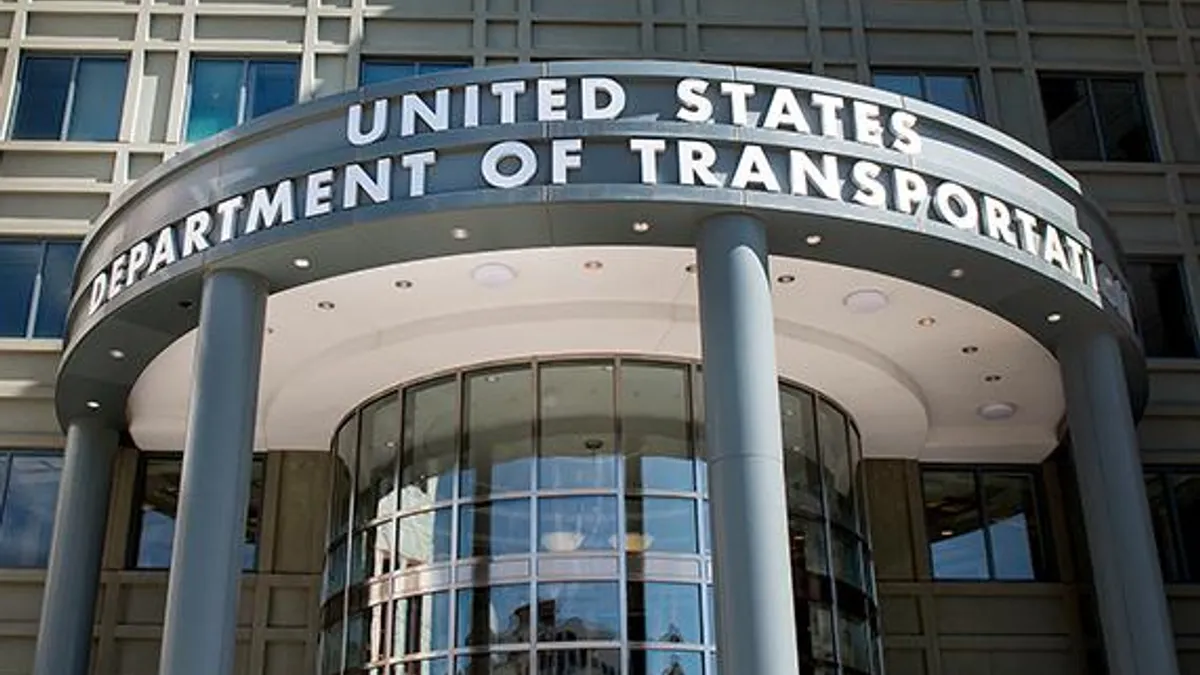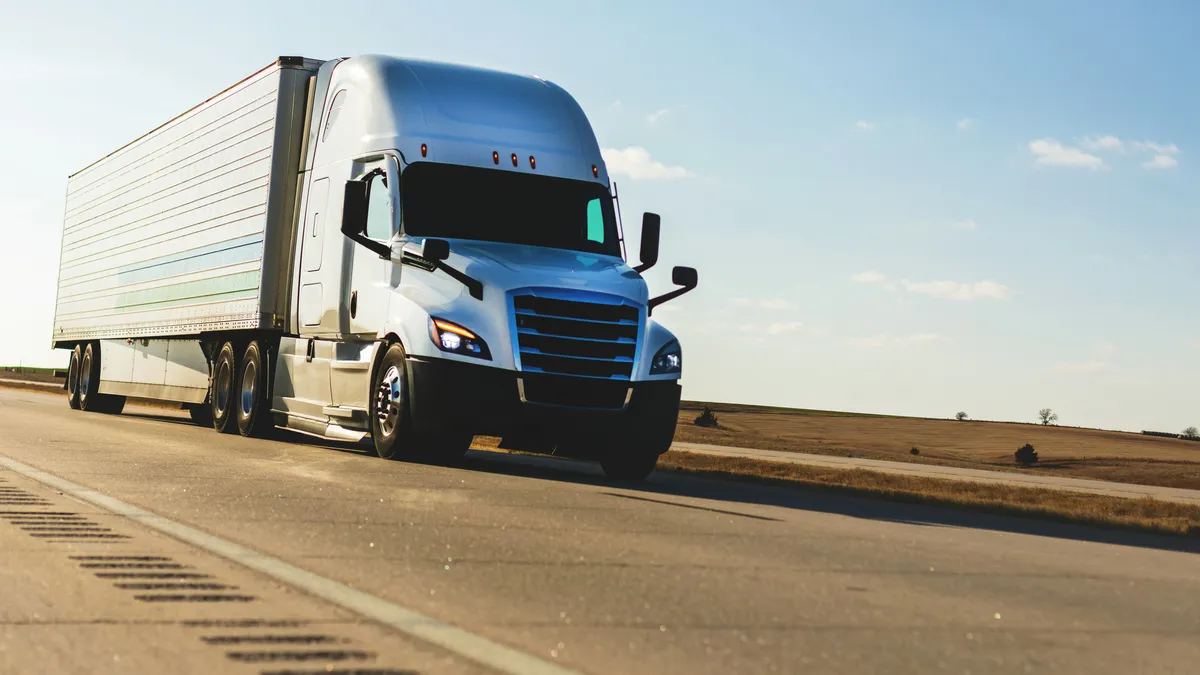Dive Brief:
- The National Highway Traffic Safety Administration rejected a push last month from safety advocates to upgrade rear impact guards, saying the tougher standard is not justifiably feasible for the industry currently.
- A final rule from July 2022 upgraded rear guard standards similar to those of Transport Canada, but advocates argued that rulemaking didn’t go far enough.
- In repeating its previous stance, the agency said that setting a safety standard for “all covered vehicles (trailers and semitrailers) to provide rear impact protection in full-frontal, 50 percent overlap, and 30 percent overlap crashes at 56 km/h (35 mph) impact speed would not be reasonable or practicable.”
Dive Insight:
Groups continue to push for higher levels of safety, but regulators have said there’s not enough evidence for those considerations at this time.
As part of its review, NHTSA analyzed data for crashes involving 30% overlap between a passenger vehicle and a trailer or semitrailer. If rear guards were required to better withstand those incidents at speeds of 35 mph or less, one or two lives would be saved each year, according to NHTSA estimates.
In 2022, the agency also said that the “data indicate that most fatal light vehicle crashes into the rear of trailers are at speeds much higher than 56 km/h (35 mph).”
The petition in question came from the Advocates for Highway and Auto Safety, the Truck Safety Coalition, Citizens for Reliable and Safe Highways, and Parents Against Tired Truckers.
Advocate Marianne Karth and her husband, Jerry, also filed a petition along with other individuals, which said “whether or not the 30% offset crashes are less frequent than at the other locations, they are certainly more severe and likely to lead to debilitating injuries and deadly tragedies.”












